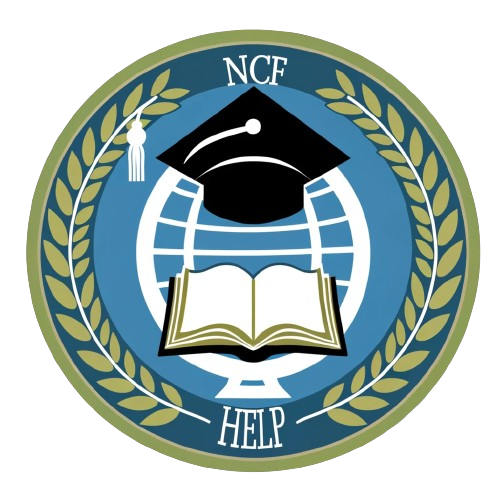The NCF-SE 2023 advocates for a significant shift in assessment practices, moving away from the limitations of standardized testing and embracing a more holistic and learner-centered approach. Here, I have attempted to summarize the NCF’s recommendations and explore how we can effectively move beyond standardized testing to create a more meaningful and effective assessment ecosystem.
NCF’s Vision for Assessment:
The NCF-SE 2023 envisions assessment as an integral part of the learning process, serving multiple purposes:
- Assessment of Learning: Measuring student achievement of learning outcomes and competencies.
- Assessment for Learning: Gathering evidence of student learning to inform teaching and improve student outcomes.
- Assessment as Learning: Engaging students in self-reflection and self-assessment to develop metacognitive skills and ownership of their learning.

“The ‘assessment culture’ must change too, so that assessment is conducted increasingly as learning and for learning.” NCFSE 2023 pg 17
Moving Beyond Standardized Testing:
The NCF recognizes the limitations of standardized testing, stating:
“The aim of assessment in the culture of our schooling system will shift from one that is summative and primarily tests rote memorization skills to one that is more regular and formative, is more competency-based, promotes learning and development for our students, and tests higher-order skills, such as analysis, critical thinking, and conceptual clarity.” (NEP 2020, 4.34)
This implies a move towards a more balanced and comprehensive approach to assessment that incorporates the following:
1. Competency-Based Assessment:
- Focus on Skills and Knowledge: Assessments should measure students’ ability to apply knowledge and skills in real-world contexts, rather than simply recalling facts.
- Clearly Defined Learning Outcomes: Learning outcomes and competencies should be clearly defined for each subject and grade level, providing a framework for assessment design.
- Variety of Assessment Methods: Utilize a diverse range of assessment methods, including:
- Formative Assessments: Regular, ongoing assessments that provide feedback to students and teachers throughout the learning process. Examples: observations, quizzes, exit tickets, student self-reflections, and peer feedback.
- Summative Assessments: Periodic assessments that evaluate student learning at the end of a unit or course. Examples: projects, presentations, performance-based tasks, and portfolios.
- Alternative Assessments: Explore options beyond traditional paper-pencil tests, such as oral presentations, debates, creative projects, and demonstrations.

2. Assessment for Learning:
- Feedback and Improvement: Provide students with timely and constructive feedback that helps them understand their strengths and weaknesses which will guide them towards improvement.
- Student Self-Assessment: Encourage students to reflect on their learning, set goals, and monitor their progress.
- Teacher Reflection: Teachers should use assessment data to reflect on their teaching practices and make adjustments to better meet student needs.
3. Holistic Assessment:
- Multiple Dimensions of Learning: Assess various aspects of student development, including cognitive, affective, and psychomotor domains.
- Values and Dispositions: Develop strategies for assessing students’ values and dispositions, such as collaboration, empathy, and respect for diversity.
- Student Portfolios: Encourage the use of student portfolios as a comprehensive record of learning progress and achievement across different subjects and activities.
Challenges and Considerations:
- Teacher Training: Teachers need training and support to develop their assessment literacy and effectively implement competency-based and formative assessment practices.
- Resource Development: Schools require adequate resources and infrastructure to support a variety of assessment methods and tools.
- Changing Mindsets: Shifting away from the culture of standardized testing requires a change in mindset among educators, parents, and students.
Recommendations for Implementation:
- Professional Development: Provide teachers with professional development opportunities on competency-based assessment, formative assessment, and alternative assessment methods.
- Curriculum Alignment: Ensure that curriculum, pedagogy, and assessment are aligned with the learning outcomes and competencies defined by the NCF.
- Collaboration and Sharing: Encourage collaboration and sharing of best practices among teachers and schools.
- Parental and Community Awareness: Educate parents and communities about the NCF’s vision for assessment and the benefits of moving beyond standardized testing.
- Policy Support: Advocate for policy changes that support a more holistic and learner-centered approach to assessment.
By embracing the NCF’s vision for assessment and moving beyond the limitations of standardized testing, we can create a more meaningful and effective assessment ecosystem that supports student learning, promotes holistic development, and prepares students for success in the 21st century. For more information about a specific topic or any assistance, I encourage you to contact me via comments or one of my colleagues on NCFHelp.com for practical applications of the NCF in your curriculum.


Comments
6 responses to “NCF 2023 and Assessment: Moving Beyond Standardised Testing”
Excellent Job ! Wish you the best .
Thank you!
Wonderful read
Thank you! Looking forward to your insights on future articles!
Well said Maám
Looking at Assessment holistically is not just the need of the hour but also a feedback mechanism to work towards betterment of overall personality of each student.
Assessment needs to be looked as a constructive part of learning rather than one that is ridden with anxiety fear and aversion.
Thank you for your thoughtful comment! I completely agree. Viewing assessment holistically and as a constructive part of learning can significantly contribute to the overall development of each student, reducing anxiety and fostering a positive learning experience.